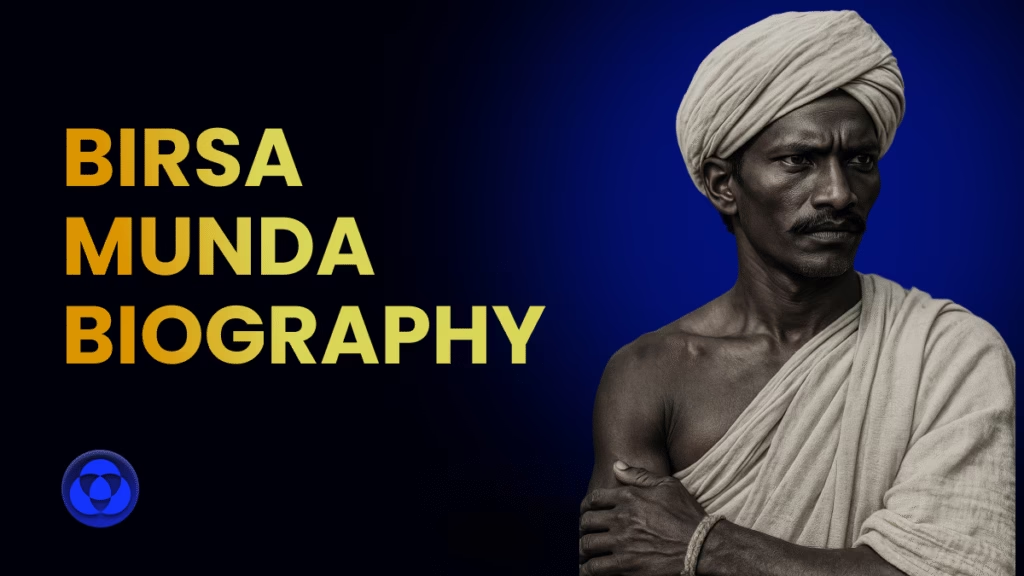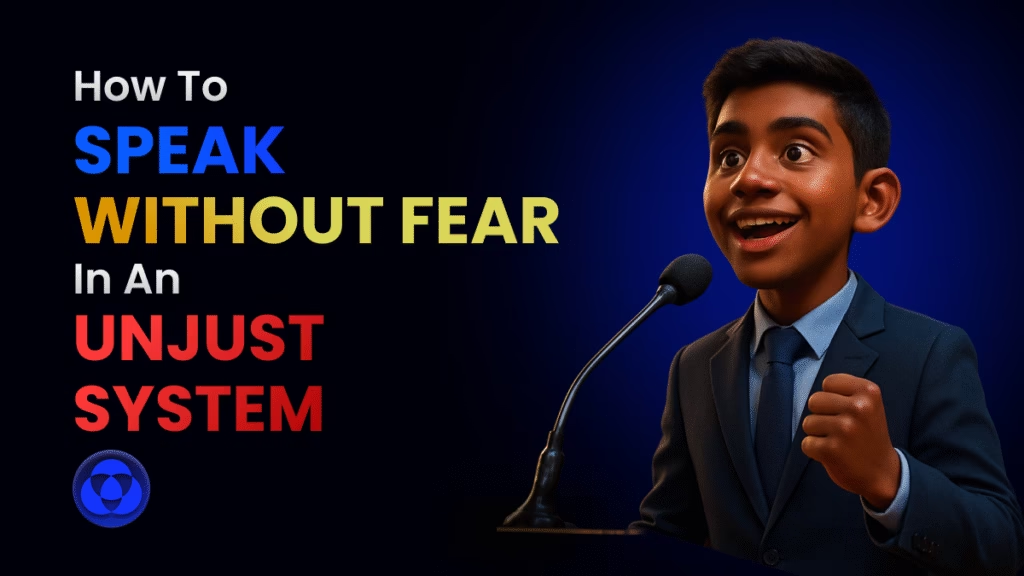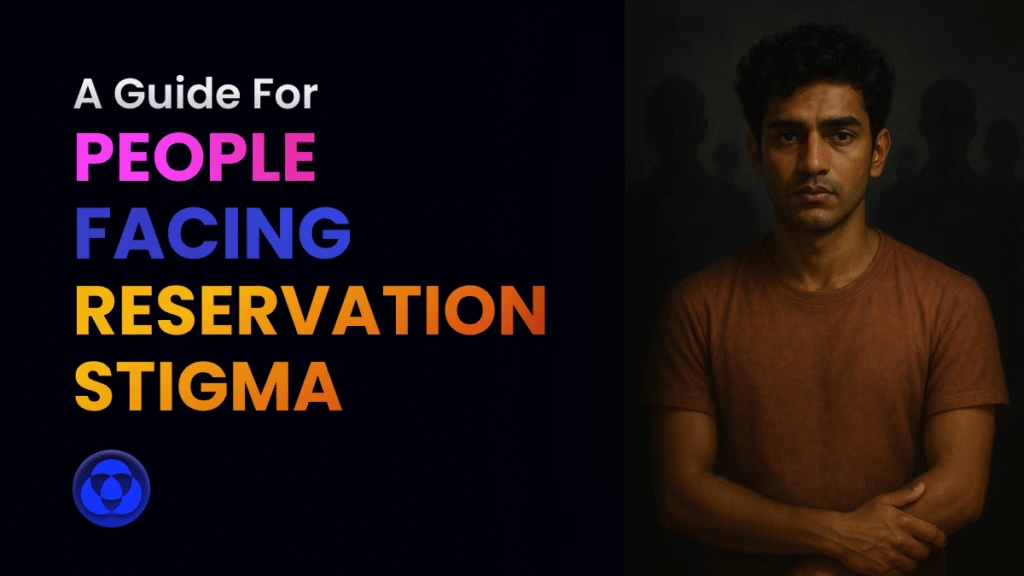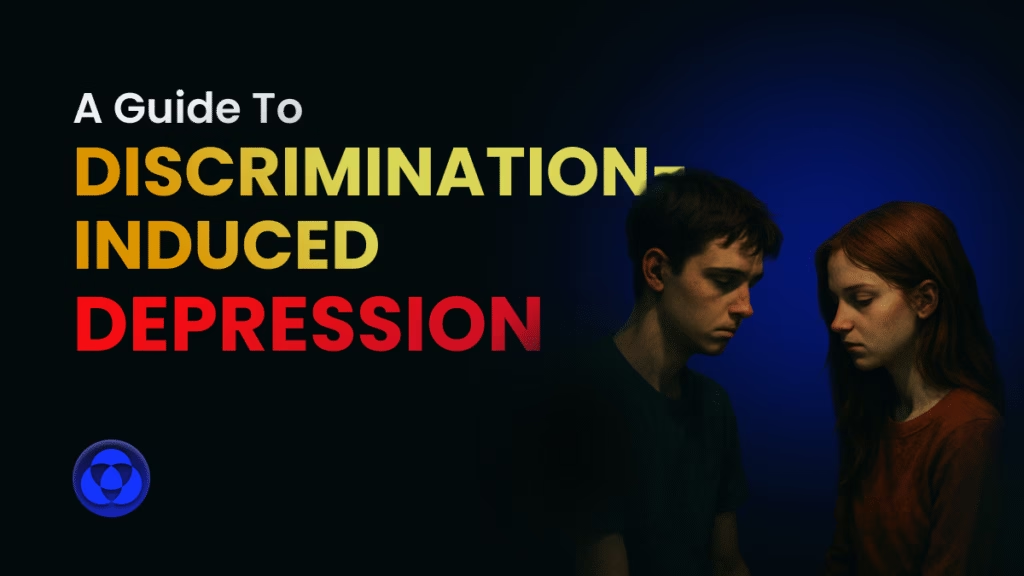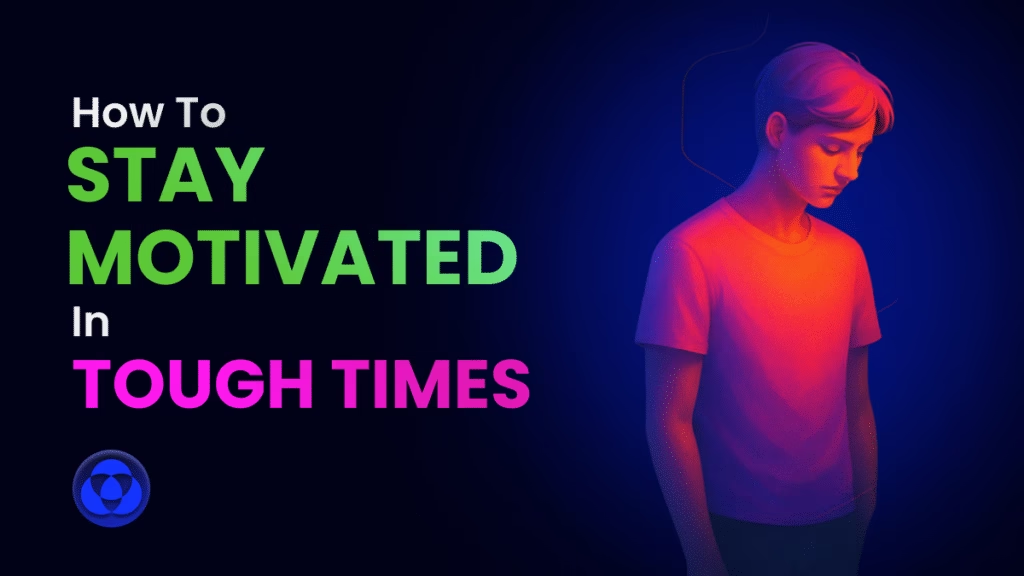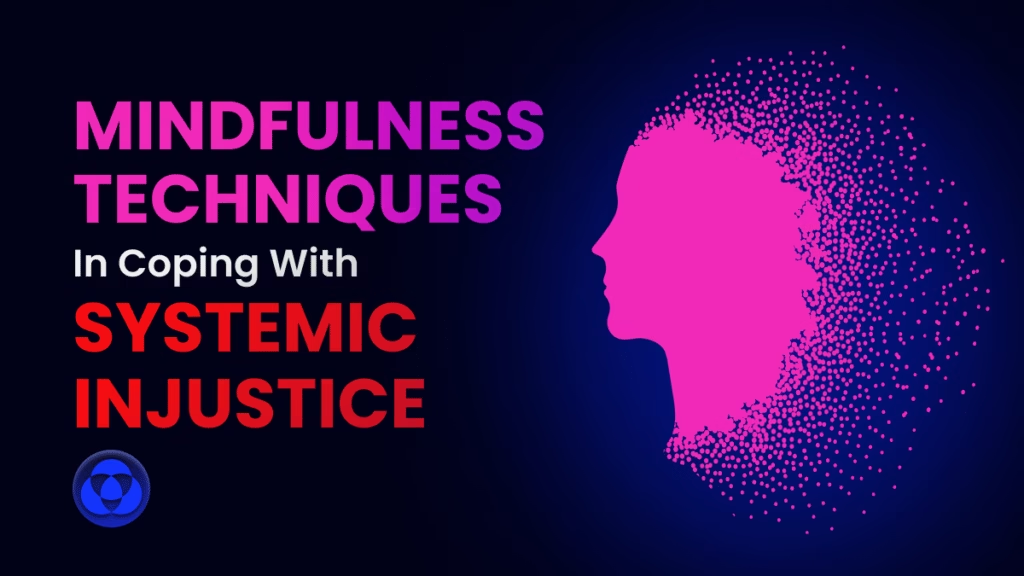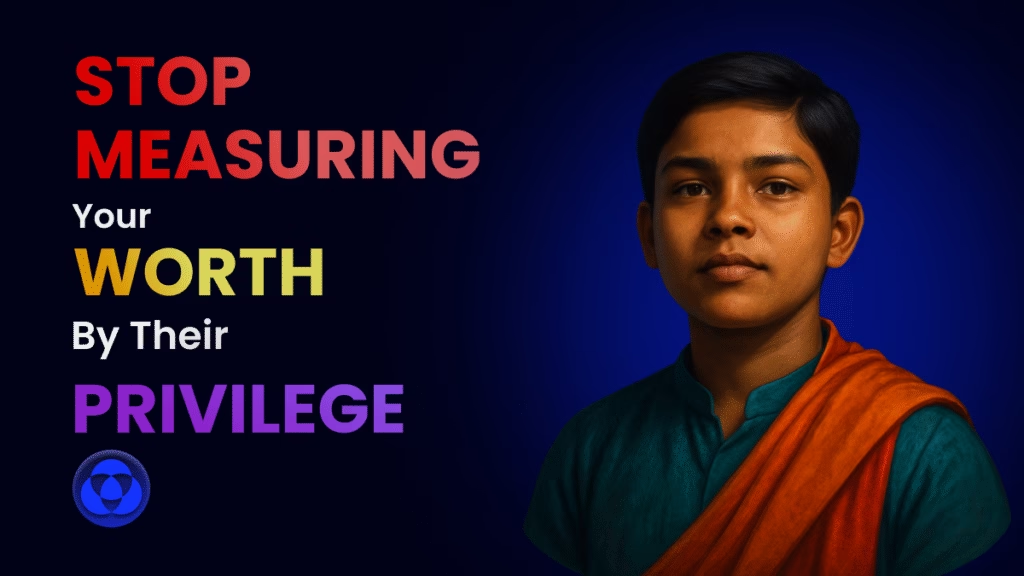Have you ever felt the need to hide or downplay your caste identity to fit in? Have you been made to feel ashamed of your roots? For many Bahujans in India and across the diaspora, this experience is all too familiar. Centuries of caste discrimination have forced many to internalize shame and self-doubt about their identity. However, reclaiming caste pride is not just a political act—it’s a crucial step toward healing and mental wellbeing.
This journey toward self-acceptance isn’t easy, but it’s necessary. When we understand how caste-based discrimination affects our self-esteem and mental health, we can begin to break free from internalized oppression and embrace our identities with confidence and dignity.

The Hidden Wounds of Caste Discrimination
Caste-based discrimination creates environments of exclusion, inferiority, and stigma that perpetuate cycles of low self-esteem and mental health struggles. For those from marginalized castes, the psychological impact runs deep and often remains unacknowledged.
The Burden of Internalized Oppression
Internalized oppression occurs when members of an oppressed group resign themselves to the methods of the oppressing group and incorporate its message against their own best interest. For many Bahujans, this means accepting negative beliefs about their own caste as truth.
When a person from a marginalized caste is repeatedly exposed to discrimination, they often develop feelings of shame, helplessness, and inferiority. Many internalize society’s beliefs about their “lower” status, which manifests as chronic low self-esteem and diminished self-worth. This internalized oppression can inhibit aspirations, limit educational achievements, and perpetuate the very inequalities they seek to overcome.
As one research study found, “lower-caste students reported feeling anxious, loss of self-esteem and confidence and alienation. Discriminatory practices hamper their overall development as they start to withdraw themselves from social settings”.
The Pressure to Hide One’s Identity
Many Bahujans feel compelled to conceal their true caste identity to avoid discrimination. Yashica Dutt, author of “Coming Out As Dalit,” describes how her family went to great lengths to project an image of affluence to hide their Dalit identity. This constant concealment takes a tremendous toll on daily life, marked by vigilance and a pervasive sense of inferiority.
The psychological burden of hiding one’s identity is immense. It creates a state of constant anxiety and vigilance—always worrying about being “found out,” always careful about what you say or do. This hypervigilance is exhausting and can lead to chronic stress, anxiety, and depression.
The Impact on Mental Health
Studies have consistently shown that caste discrimination has serious consequences for mental health. People from lower castes tend to experience depression 40% more than the national average in India. Even when controlling for socioeconomic factors, the gap in mental health outcomes persists, indicating that caste discrimination itself—not just economic disadvantage—harms psychological wellbeing.
The trauma from caste-based violence and exclusion can lead to conditions such as Post-Traumatic Stress Disorder (PTSD), depression, and anxiety. Yet access to mental health support remains scarce for marginalized groups, especially in rural areas.

Why Caste Pride Matters for Mental Wellbeing
Given these challenges, why is embracing caste pride so important for mental health? The answer lies in understanding that reclaiming one’s identity is a powerful act of resistance and healing.
From Shame to Self-Respect
Caste pride isn’t about claiming superiority over others—it’s about refusing to accept the narrative that your identity makes you inferior. It’s about recognizing your inherent worth and dignity regardless of where you fall in a hierarchical system created to oppress.
When you embrace your caste identity with pride, you reject the shame that society has tried to impose on you. This shift from shame to self-respect is profoundly healing. It allows you to see yourself not as society sees you, but as you truly are—a person of value and dignity.
Building Resilience Against Discrimination
Pride in one’s identity builds resilience against discrimination. When you know your history and understand the contributions your community has made to society, discriminatory messages lose their power to define you.
As one activist notes, “Expressing pride in one’s caste can be a means of reclaiming a positive identity, challenging stereotypes, and empowering marginalized communities”. This reclamation serves as a buffer against the psychological harm of discrimination.
Finding Community and Belonging
Humans are social beings who need a sense of belonging. When you embrace your caste identity, you connect with a community that shares your experiences and understands your struggles. This connection reduces feelings of isolation and provides crucial social support.
Research shows that “the feeling of ‘belongingness’ is crucial for an individual’s overall psychological wellbeing”. By embracing your identity, you find your place in a community that can offer understanding, support, and solidarity.

Practical Ways to Embrace Your Caste Identity with Pride
Moving from theory to practice, here are concrete steps you can take to reclaim your caste identity with pride and improve your mental wellbeing:
Learn About Your History and Culture
Knowledge is power. Learning about the history, achievements, and contributions of your community can replace shame with pride. Study the works of leaders like Dr. B.R. Ambedkar, whose writings and activism continue to inspire anti-caste movements today.
As Dadasaheb Tandale shares in his personal account: “Our family converted to Buddhism with Dr. Ambedkar. We have left our Dalit-hood behind; we are not Mahars anymore. If we are anything, we are Ambedkarites and Buddhists. You believe that no matter what anyone else says”. This connection to historical figures and movements can provide a sense of purpose and belonging.
Challenge Internalized Stigma
Recognize and reject negative stereotypes about your community. When negative thoughts about your identity arise, question them: Where did these ideas come from? Who benefits from my believing them? Are they actually true?
Remember that these negative beliefs were imposed by a system designed to maintain power hierarchies. They are not reflections of your true worth or potential.
Surround Yourself with Positive Representation
Seek out books, films, music, and art created by people from your community. Follow social media accounts that celebrate Bahujan identity and achievements. These positive representations can counter the negative stereotypes perpetuated by mainstream media.
Filmmaker Pa. Ranjith and others are working to reclaim Dalit stories in cinema, challenging the traditional portrayal of Dalits in minor roles of poverty and helplessness. Engaging with such work can help you see your community in a new, empowering light.
Speak Openly About Your Background
While safety should always be your priority, speaking openly about your identity when possible can be liberating. Refusing to hide your background out of shame is a powerful act of self-affirmation.
As Yashica Dutt explains, her decision to publicly declare her caste identity through her writing was influenced by her experiences in the U.S., where she felt relief from the constant scrutiny of her caste. Finding safe spaces to be open about your identity can reduce the psychological burden of concealment.
Connect with Community
Seek out or create spaces where people from your caste or marginalized background can come together—whether it’s a local group, online forum, or cultural circle. In these shared spaces, you’ll find not just support, but also stories that reflect your own journey. This sense of belonging and mutual understanding helps break isolation, builds collective strength, and plays a vital role in healing and mental wellness.
Practice Self-Affirmation
Regularly remind yourself that your identity is valuable, strong, and deserving of respect. Self-affirmation practices can help counter negative messages from society and build self-esteem.
Try writing down affirmations that celebrate your identity and reading them daily. For example: “My heritage gives me strength,” “I am proud of who I am and where I come from,” or “I carry the resilience of generations before me.”
Engage in Activism
Fighting for social justice can reinforce self-worth and collective pride. By working to dismantle caste discrimination, you reclaim agency and contribute to creating a more just society for future generations.
Remember that activism can take many forms—from formal organizing to everyday conversations that challenge caste prejudice. Find the form of activism that feels right for you and your circumstances.

Navigating Challenges on the Journey to Pride
The path to embracing caste pride isn’t without challenges. Here are some common obstacles and how to address them:
Dealing with Continued Discrimination
Even as you work to embrace your identity with pride, you may still face discrimination from others. Having strategies to cope with these experiences is essential.
Establish boundaries with people who express casteist views. Surround yourself with supportive individuals who respect your identity. And remember that others’ prejudice reflects their limitations, not your worth.
Balancing Pride with Inclusivity
There’s a big difference between having healthy pride in your caste identity and using that pride to look down on others. For marginalized communities in India, embracing caste pride is about reconnecting with our roots, finding dignity in who we are, and feeling included—not about promoting caste-based discrimination ourselves.
Because of centuries of oppression, many of us have been made to feel ashamed of our backgrounds. Often, we don’t even know the full history of our communities because that information has been hidden or ignored. Healthy caste pride helps us reclaim that lost connection and feel confident and united. It should never turn into exclusion or create new hierarchies. Instead, it should be a step toward self-respect and collective empowerment.
Finding Professional Support
If you’re struggling with the psychological impact of caste discrimination, seeking professional mental health support can be beneficial. However, finding culturally sensitive care can be challenging.
Look for therapists who understand caste issues or are willing to learn. Consider online therapy options if local resources are limited. And remember that peer support groups can be valuable complements to professional care.
The Collective Journey: Beyond Individual Healing
While individual healing is important, addressing caste discrimination requires collective action. Here’s how we can work together for change:
Educating Allies and Bystanders
Those with caste privilege have a responsibility to educate themselves and others about caste discrimination. As one activist writes, “It is time that those who are Savarna, or Upper-caste, begin to learn to name and own their privilege and take on the burden of educating and dismantling caste in your own families and social networks”6.
If you have caste privilege, listen to the experiences of those from marginalized castes without dismissing or challenging them. Recognize how your privilege has shaped your experiences and opportunities. And use your position to challenge caste discrimination when you witness it.
Creating Inclusive Institutions
Schools, workplaces, and other institutions must address caste discrimination through policies and practices that promote inclusion and respect. This includes diversity training that addresses caste, clear procedures for reporting discrimination, and representation of marginalized castes in leadership positions.
Supporting Anti-Caste Movements
Supporting organizations and movements working to end caste discrimination amplifies their impact. This can include financial contributions, volunteering, sharing information about their work, or participating in their campaigns.
Embracing Pride as a Path to Healing

Embracing caste pride is not about reinforcing divisions—it’s about healing from the wounds of discrimination and reclaiming the dignity that caste oppression has tried to deny. It’s about refusing to be defined by others’ prejudices and instead defining yourself through your own strength, resilience, and worth.
As you journey toward embracing your identity with pride, remember that you’re not alone. You’re part of a long tradition of resistance against caste oppression—a tradition that includes scholars, activists, artists, and ordinary people who have refused to accept the narrative of their inferiority.
Your identity is not a source of shame but of strength. Your history is not one of inherent inferiority but of resilience in the face of oppression. And your future is not determined by caste hierarchies but by your own courage, determination, and self-respect.
By embracing your identity with pride, you not only heal yourself but contribute to healing our society. You help create a world where no one has to hide who they are or where they come from—a world where everyone’s dignity and worth are recognized and respected.
The journey may be challenging, but it is worth taking. Because when you embrace your identity with pride, you reclaim not just your past but your present and future. You declare that you will no longer be defined by oppression but by your own power to overcome it.
And in that declaration lies not just personal healing but the seed of collective liberation.


